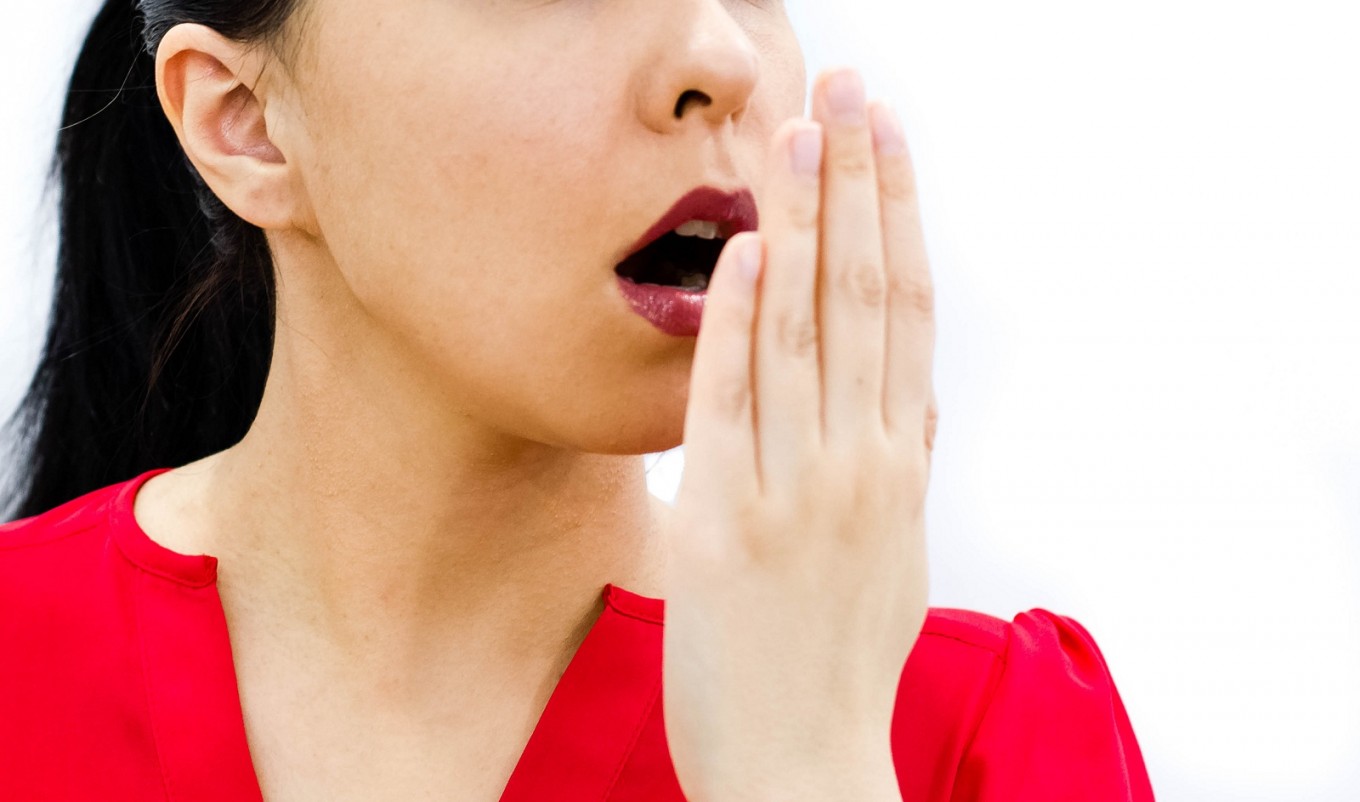Popular Reads
Top Results
Can't find what you're looking for?
View all search resultsPopular Reads
Top Results
Can't find what you're looking for?
View all search resultsGot persistent foul breath? Here’s a home remedy
Change text size
Gift Premium Articles
to Anyone
T
he medical term for it is halitosis, but you don’t need to be a medical practitioner to be able to detect bad breath; you can sniff it out.
What causes bad breath? In most cases, the foul-smelling compounds that result in bad breath originate from the mouth and not the stomach or other parts of the body.
Bad breath is caused by gram negative bacteria that live between the spaces between gums and teeth and on the back of the tongue. Like all organisms, these bacteria require nutrition. Typically, the feed on mucus, food remnants and dead tissue cells.
In order to ingest these past their cell membrane, they need to break these down into much smaller molecules. These catabolic reactions result in the release of volatile sulphur compounds, including hydrogen sulphide and cadavene, which escape into the air as bad breath.
Read also: Bad habits that may harm your teeth
“Bad breath bacteria” proliferate when exposed to acids like caffeine and products containing sugar. Ethanol has been thought to be of help, but it serves to dry out the mouth, and bacteria thrive in dry environments.
Halitosis is an unfortunate condition that has persisted over centuries. The ancient Greeks fought it by chewing aromatic resins, while the Chinese resorted to egg shells, but most people miss this simple, reliable solution: drinking more water.
According to Dr. Ada S. Cooper, DDS., a national spokesperson for the American Dental Association, foul-smelling breath may be a sign that you’re dehydrated. If so, even using mouth wash as often as four times a day may not help. “When your mouth becomes more dry, you have less saliva. And when you have less saliva, food and bacteria tend to sit in your mouth for a much longer period of time,” she said as quoted by Reader's Digest.
Of course, there are other factors that worsen halitosis beyond a dry mouth and poor hygiene. Dr. Cooper recommends nightly brushing of teeth, as trapped food remnants and bacteria can produce an odor while you are asleep.
If your bad breath persists, you might need to visit a dentist to investigate the underlying cause of your halitosis. (afr/kes)











